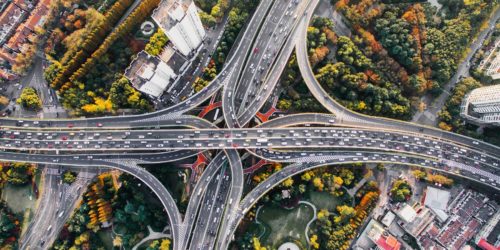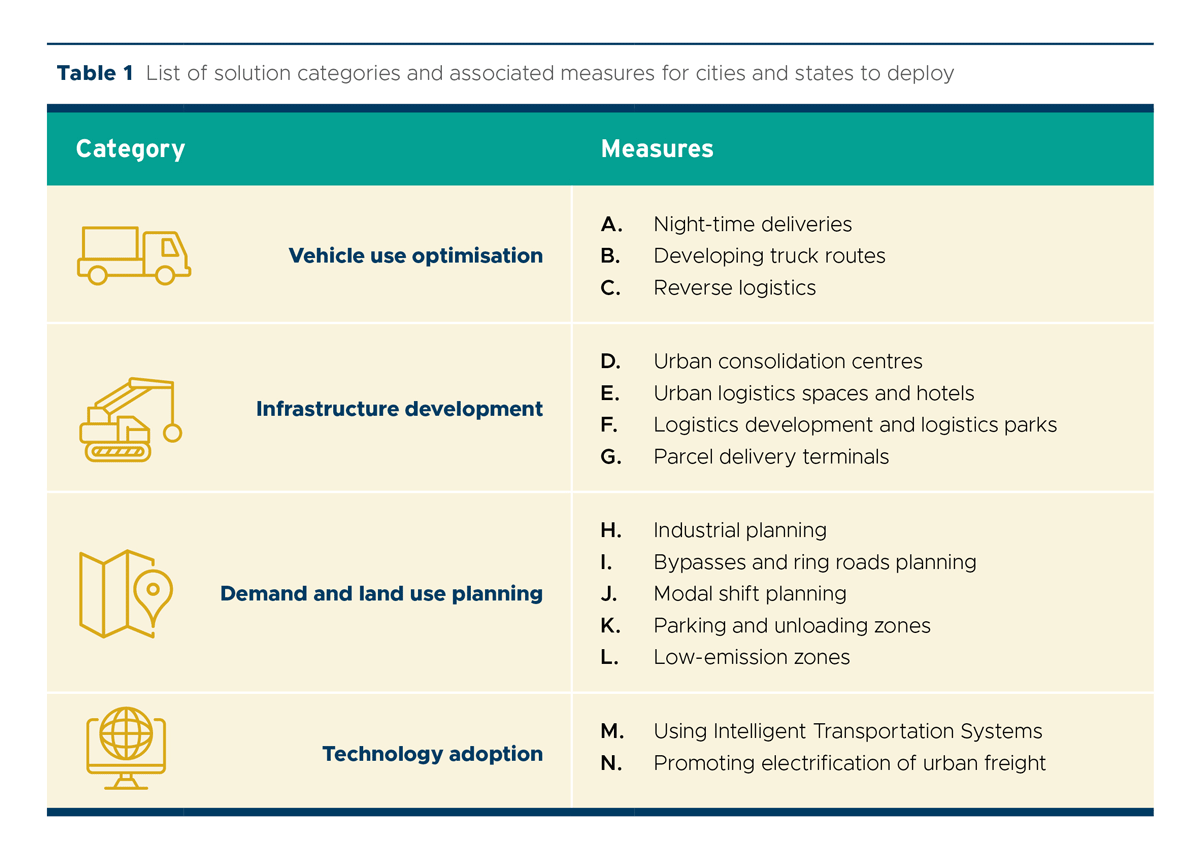
Report | 2021
Enhancing Urban Freight Systems
A Handbook of Measures on Performance Improvement
India is experiencing rapid urbanization. Urban freight transport is a crucial enabler of economic activity in cities, ensuring the flow of goods for citizens and businesses. However, urban freight systems also generate negative consequences. Freight vehicles are disproportionate contributors of carbon dioxide, particulate matter, and nitrogen oxide emissions. They contribute to road fatalities and cause congestion issues in cities. Furthermore, urban freight is increasingly becoming inefficient with high final-mile costs in India’s e-commerce supply chains.
With India expected to add 124 million people to its cities in this decade, the demand for urban freight is expected to increase by 140 percent. There is an urgent need to deliver improvements in the performance of urban freight systems so that cities can enhance their economic competitiveness and reduce logistics-related costs while improving air quality, creating jobs, and helping achieve climate goals.
Several cities in India and around the world have implemented measures that can address different urban freight-related issues. This Handbook details a few such measures as a knowledge resource and guide for city practitioners.
Enacted effectively, these measures can help reduce logistics costs at the national level and improve India’s ranking in the Logistics Performance Index (LPI).
